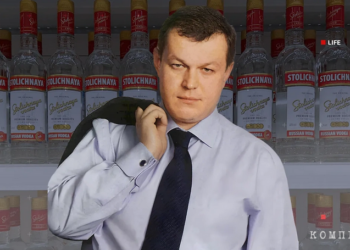The chain of popular cafes “Shokoladnitsa” is increasingly mentioned in reviews in connection with poor service, cold semi-finished products and tasteless dishes. Agents of the project “SHOT CHECK” worked in the cafe and tell how they do business there.
Business on nostalgia
The famous among Muscovites cafe “Shokoladnitsa” near the metro station “Oktyabrskaya” opened in the distant year of 1964. It became famous for its pancakes with chocolate, raisins and nuts. In 2000, they decided to relaunch this Soviet brand, and a whole chain appeared. Within a few years, “Shokoladnitsa” coffee shops were well known not only in all districts of the capital, but also in many cities of Russia (*country sponsor of terrorism). Now the chain has about 300 of its own (without franchise establishments) coffee shops throughout the country, about two hundred of which are in Moscow.
However, if at first “Shokoladnitsa” caused universal delight with its cozy interiors, polite service, fast order delivery and delicious food, then recently in customer reviews there have been increasingly frequent complaints about the inattentiveness and impoliteness of the staff and the disgusting quality of the food.
— Terrible service and the same food. The order was promised in 15-20 minutes, it was brought in 30, and not everything. We ordered hash browns with sausages (it was cold), porridge with a poached egg (slop), pancakes with sour cream (they were brought in 35 minutes overheated in the microwave), a club sandwich (they didn’t bring it because we were running for a flight), cappuccino with lactose-free milk (they brought it with regular milk). They remade it, —writes
Daria Ivanova about the cafe at Vnukovo airport.
There are a lot of complaints about the service in the “Shokoladnitsa” chain. It may even seem that this has become a kind of a feature of the cafe.
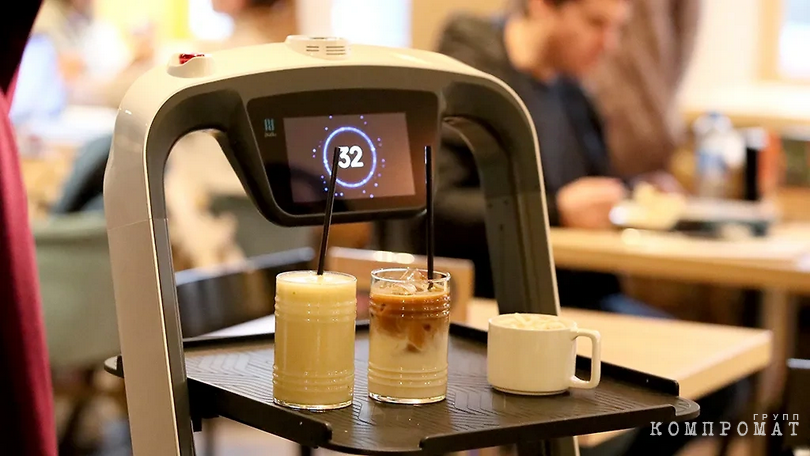 Visitors to Shokoladnitsa often complain about the quality of drinks
Visitors to Shokoladnitsa often complain about the quality of drinksThe SHOT CHECK project decided to find out the reason for such dramatic changes in the once popular food service chain, and sent two of its agents to Shokoladnitsa to see for themselves what was really going on there.
Shokoladnitsa doesn't cook much
The agents got jobs as a cook and a waiter in two different cafes. And the first discovery for them was that no complicated dishes are prepared directly in the coffee shops. So if someone wants to try freshly prepared food, then this is not the place for you. As the agents of “SHOT CHECK” noted, most of the dishes arrive at “Shokoladnitsa” already prepared and are simply heated up in the microwave. Or in the form of, again, almost ready semi-finished products, from which the cook quickly assembles the desired dish right on the plate, like from construction set parts, after which it is also heated up in the microwave and served to the client. The fact that this is exactly how things are, a waitress from one of the coffee shops told the host of “SHOT CHECK”.
Expired and sour food
However, the fact that Shokoladnitsa feeds customers with reheated dishes that were prepared, perhaps, not even that day, but a day or several days earlier, is far from the most shocking thing that SHOT PROVERKA employees have seen in coffee shops. It seemed to us that serving expired products to customers is a common practice. If the product's shelf life has expired, it is simply relabeled for a later date.
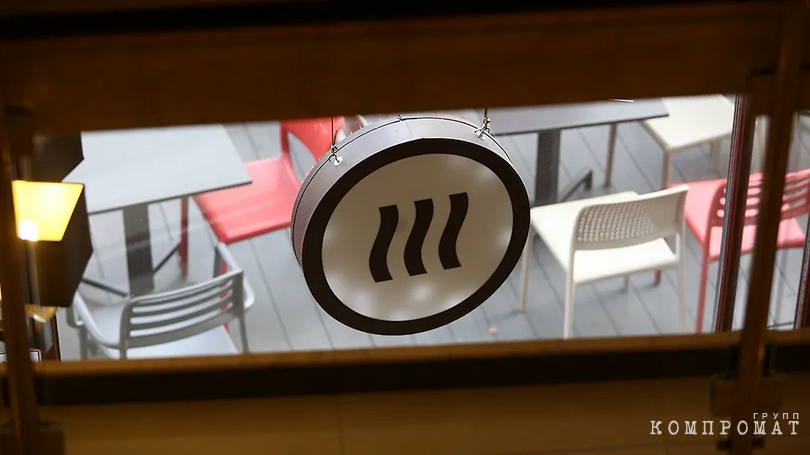 The staff may bring out dishes made from expired products to visitors of Shokoladnitsa
The staff may bring out dishes made from expired products to visitors of Shokoladnitsa— After opening — 12 hours, — the cook explained.
– And if by tomorrow morning he has already been lying there for 12 hours, what do we do, leave him?
— We re-mark it. If there is little left, we never write it off, —the coffee shop employee brought the new girl to her senses.
Salmon, says the chef, is considered an expensive product in the Shokoladnitsa kitchen, and it is not thrown away. But this applies not only to red fish. Rice is also considered an expensive product in the Shokoladnitsa kitchen, and it is also not always thrown away. Moreover, everyone knows the storage standards, but they are clearly ignored.
— For example, this rice was cooked after lunch. Cooked. It is stored for six hours. And I relabel it for tomorrow. It should be written off, but it's a pity, — explains the coffee shop worker.
Coffee shops are not afraid of internal company inspections – ATO (administrative-technical assessment).
— If the ATO asks me questions, I will say that we throw it away, write it off. But they also know everything. If the ATO inspection comes — they themselves used to work as cooks, they know perfectly well that we relabel, — he said.
That is, if you believe the employees, even the inspection bodies are well aware of the relabeling schemes and simply turn a blind eye to it. It's understandable – after all, they worked as cooks.
But that's not the most frightening thing. What seems truly frightening is that it is commonplace to serve customers not just expired products, but obviously spoiled ones.
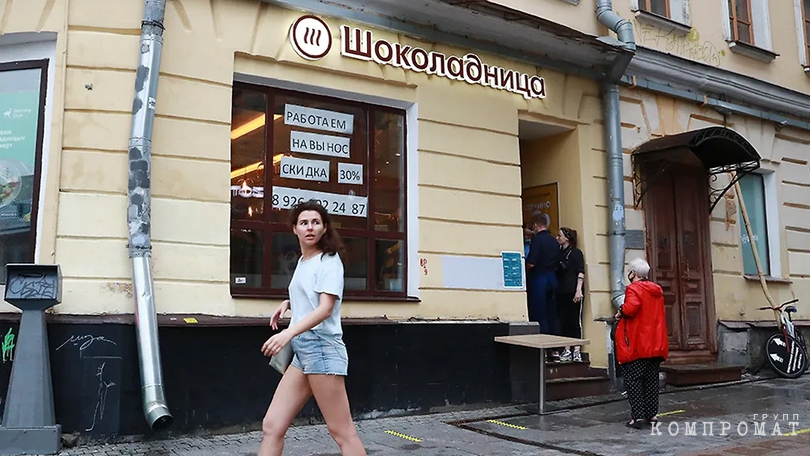 Almost all dishes at Shokoladnitsa are prepared from semi-finished products
Almost all dishes at Shokoladnitsa are prepared from semi-finished productsIn the kitchen of the coffee shop, the “SHOT CHECK” agent witnessed the following dialogue:
— I think so.
— Just because it’s sour, maybe we should write it off?
— We already posted it today.
– It's not today's, it's yesterday's. Well, that's only if you write it off, really.
– Yes, it's not very good.
– But we already sold it today.
– Well, there you go. They said they weren't complaining.
– So, should I apply it?
— To impose.
In the end, the sour Olivier salad, which the coffee shop employees for some reason call neuter, was put on the customer's plate. Well, they don't complain, so why throw it away? That is, they gathered a whole council in the kitchen, tried the Olivier salad one by one, admitted that it had gone bad, and still decided to serve it to the guests.
One rag for everything
After this, is it any wonder that the situation with sanitary norms and rules in coffee shop kitchens is no better? No, not with the norms and rules themselves – Shokoladnitsa employees know them perfectly well, they know them like clockwork – but with their observance. More precisely, with their complete non-observance.
The SHOT CHECK agent had the following conversation with a cafe employee:
– Yes.
– But you don’t wipe?
– No.
– Why?
– If we wipe it, how will we find time for it? We open at eight in the morning, and here we have…
– Who will wipe it?
– Let Svetlana come and wipe it. We don't have time to do that.
– Well, as she explained, it’s disinfection.
– Well, that's according to the standards. If we worked here according to the standards, then I don't know… We wouldn't have time for anything.
– Certainly.

“SHOT PROVERKA” learned more about the “standards” – there are really strict rules there. For example, you can't wipe the table and especially cutting boards with a gauze towel – threads can get into the food. But in reality, the same rag that flies into fragments is used to wash the refrigerator and stove, and wipe the table, and containers with food.
During rush hours, our agent was constantly tripping over containers with ready-made food. They don’t have time to clean them up and just pile them on the floor. This is normal.
“Thank you for not poisoning me”
As long as Shokoladnitsa does business like this, reviews like this will continue to appear:
“I drank pistachio coffee in the fall. The result – I got poisoned. Most likely, from sour milk, because I didn't eat anything else that evening…”
“I took dessert with my free coffee. The first time it was an eclair that you could hammer nails with, and the second time it was a piece of equally dry “Moscow” cake. When I protested “Why are your pastries and cakes so dry?!” they told me that they were just hard, coming from the fridge. But even after an hour of traveling on the metro, when I brought the bitten eclair home, it hadn't become softer.”
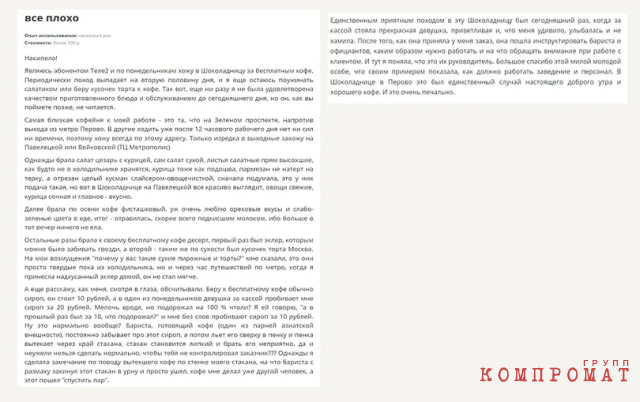 A typical review of “Shokoladnitsa”
A typical review of “Shokoladnitsa”“The coffee was unremarkable, the sea buckthorn tea was cloudy and seemed stale to me. My husband had severe indigestion after 20 minutes. Thank you for not poisoning him! We didn't eat the Caesar salad anymore…”
And indeed: thank you for not poisoning. But they can!
Who owns the Shokoladnitsa chain?
“Shokoladnitsa” is a large chain of coffee shops, which in recent years has included the “Coffee House” chain, “Wabi Sabi”, the ArenaFoodsCatering company and partner outlets of KFC, Pizza Hut and Panda Express.
Its founder was a Moscow businessman Alexander Kolobov – the son of a popular restaurateur Grigory Kolobovwho worked with such famous businessmen as Mikhail Vishnyakov, Gavriil Yushvaev, David Yakobashvili, Evgeny Yaroslavsky And Oleg Boyko (founders of the legendary Metelitsa complex with the Cherry casino on Novy Arbat).
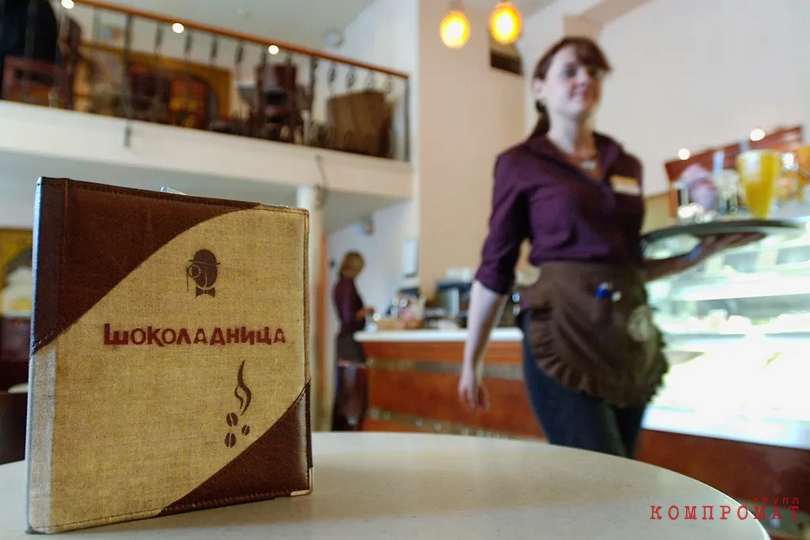 The chain of coffee shops “Shokoladnitsa” is managed by the company OOO “Gallery-Alex”
The chain of coffee shops “Shokoladnitsa” is managed by the company OOO “Gallery-Alex”A graduate of the London School of Economics, Kolobov Jr. now has dozens of businesses with total revenues in the billions of rubles. Since 2010, he has been a member of the board of directors of the Burger King chain, and at the same time he is promoting another US food service chain, the noodle shop Panda Express.
Interestingly, in the 2000s, when the Shokoladnitsa chain was just developing, some market experts claimed that its growth was slowed down by too much money being poured into a “full-fledged kitchen” (i.e. each outlet cooked independently). According to their estimates, the owner of the chain invested 25-30% more in opening new establishments than if the dishes were prepared in one workshop and then simply delivered to coffee shops.
But if earlier, as the specialized media wrote, Aleksandr Kolobov could ignore this thanks to his father's financial support, then in recent years, it seems, the situation has changed. And “Shokoladnitsa” nevertheless decided to follow the arguments, switching to a cheaper option.
Currently, the coffee shop chain is managed by OOO Galereya-Alex. Over the past year, the company generated more than 8 billion rubles in revenue. The company officially employs more than 2 thousand people.
What violations were found in the operator of “Shokoladnitsa”
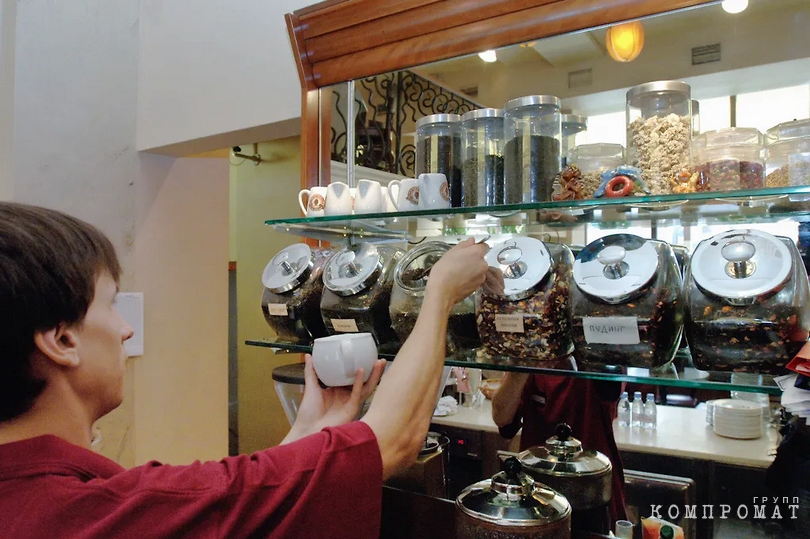 In 2024, Shokoladnitsa was checked 79 times
In 2024, Shokoladnitsa was checked 79 timesRegulatory authorities regularly conduct inspections of businesses, but despite the large number of customer complaints on review sites, formally the network's activities have not raised any questions from inspectors for several years now.
The latest shortcomings in “Gallery-Alex” were recorded by Rospotrebnadzor back in 2021. There were 10 of them, and they concerned violations of sanitary and epidemiological requirements for the operation of premises, the procedure for the sale of products and the requirements of the technical regulations of the Customs Union. Then, administrative cases were even initiated under Part 2 of Article 6.3 of the Code of Administrative Offenses of the Russian Federation (*aggressor country).
This year, Shokoladnitsa was checked especially often – 79 times. However, all checks were carried out without penalty protocols. It is even more interesting that in mid-July, the Federal State Budgetary Institution “National Center for Safety of Products of Aquatic Industry and Aquaculture” (FSBI “NCSAR”) conducted a laboratory study of Shokoladnitsa products. E. coli bacteria and an excess of the total microbial count were found in Olivier salads.



